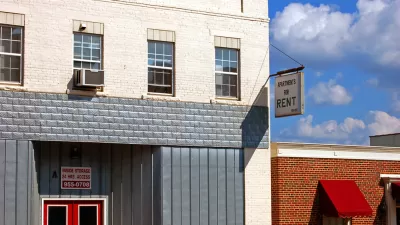The urbanist puts the blame for rising housing costs largely on landlords and property owners, arguing that much of the wealth created by modern capitalism is ‘plowed back into dirt.’

The dispersal of people from major cities during the pandemic could have reduced pressure on housing markets and lowered housing costs. In fact, writes Richard Florida in Bloomberg CityLab, “As knowledge and tech workers spread out in search of more space, housing prices and rents surged in once-affordable communities across the country” while mostly remaining unrelentingly high in big cities.
“Between December 2020 and December 2021, the median US home grew in value by $52,667, out-earning the median worker, who pocketed $50,000.” On the rental side, “Between May 2021 and May 2022, rents rose by more than 15% to an average of more than $2,000 across the nation as a whole.” Meanwhile, institutional investors are buying an increasingly larger share of housing units.
Paradoxically, “At the very time when technology promises to free us from the constraints of geography and open up more choices of places for people to live, real estate has become an even bigger constraint, with housing prices and rents rising across the board and especially in once-affordable parts of the country.”
To explain this, Florida uses Henry George’s theory on economics, which adds a third class of property owners or landlords to Marx’s classic analysis of capitalists and workers. Rather than capital taking surplus value from labor, George argues that “it is landlords who walk away with the surplus generated by both capital and labor.” Building on that theory, Florida argues that “Instead of driving more innovation and growth, the bounty from today’s knowledge economy is instead diverted into rising land costs, real estate prices and housing values,” keeping the fortunes of workers in an untethered, digital economy very much tied to the physical realm.
FULL STORY: How the ‘Rise of the Rest’ Became the ‘Rise of the Rents’

Trump Administration Could Effectively End Housing Voucher Program
Federal officials are eyeing major cuts to the Section 8 program that helps millions of low-income households pay rent.

Planetizen Federal Action Tracker
A weekly monitor of how Trump’s orders and actions are impacting planners and planning in America.

Ken Jennings Launches Transit Web Series
The Jeopardy champ wants you to ride public transit.

Washington Legislature Passes Rent Increase Cap
A bill that caps rent increases at 7 percent plus inflation is headed to the governor’s desk.

From Planning to Action: How LA County Is Rethinking Climate Resilience
Chief Sustainability Officer Rita Kampalath outlines the County’s shift from planning to implementation in its climate resilience efforts, emphasizing cross-departmental coordination, updated recovery strategies, and the need for flexible funding.

New Mexico Aging Department Commits to Helping Seniors Age ‘In Place’ and ‘Autonomously’ in New Draft Plan
As New Mexico’s population of seniors continues to grow, the state’s aging department is proposing expanded initiatives to help seniors maintain their autonomy while also supporting family caregivers.
Urban Design for Planners 1: Software Tools
This six-course series explores essential urban design concepts using open source software and equips planners with the tools they need to participate fully in the urban design process.
Planning for Universal Design
Learn the tools for implementing Universal Design in planning regulations.
Heyer Gruel & Associates PA
Ada County Highway District
Institute for Housing and Urban Development Studies (IHS)
City of Grandview
Harvard GSD Executive Education
Toledo-Lucas County Plan Commissions
Salt Lake City
NYU Wagner Graduate School of Public Service





























